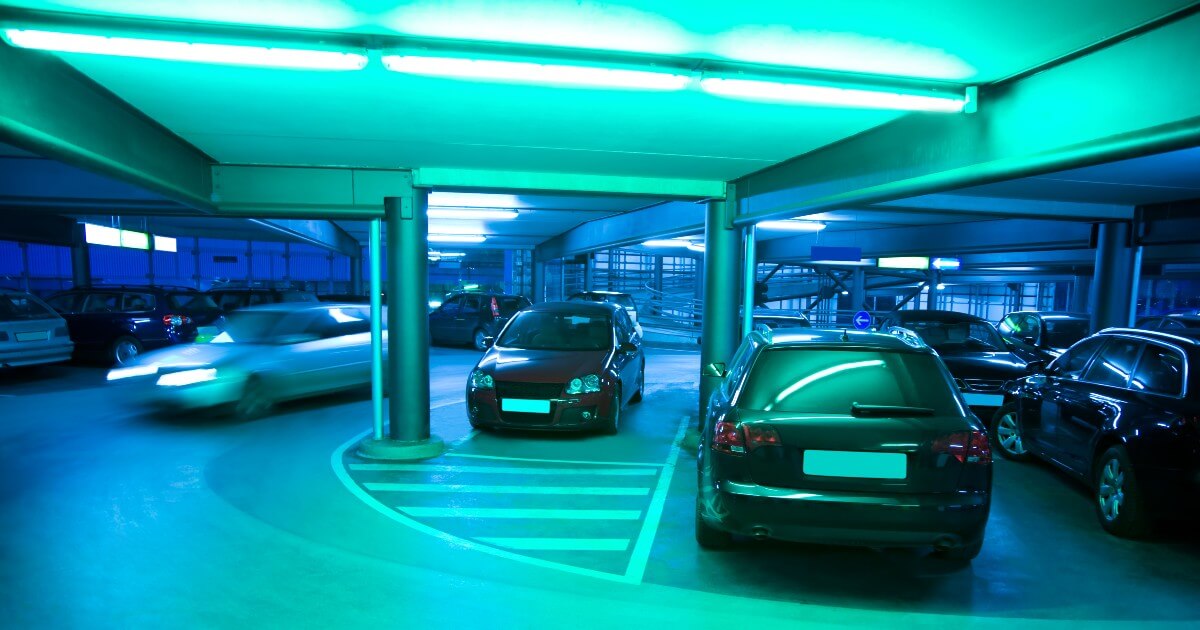When a car accident happens on a public road, drivers look to the insurance company to cover the damages. However, if there is a crash on private property, drivers may be unsure what to do next. Should you call police to the crash scene? Who is liable for the damages? Does insurance still apply?
At High Stakes Injury Law, we are prepared to answer your legal questions and determine your eligibility for a claim. Our firm has recovered more than $100 million on behalf of our clients. If we represent you, we will work relentlessly to seek maximum compensation for your damages.
Does Insurance Cover Damages for a Crash on Private Property?
In general, your car insurance is intended to cover traffic accidents, even if you had a crash on private property. Although, the amount you may recover is impacted by the available coverage, along with other factors.
In Nevada, the minimum car insurance coverage drivers are required to carry includes:
- $25,000 for the bodily injury or death of one person in a single incident
- $50,000 for bodily injury or death of two or more persons in a single crash
- $20,000 for property damage per accident
While uninsured motorist covered must also be offered in Nevada, policyholders can opt out, but only in writing. We recommend that drivers consider purchasing uninsured motorist insurance and collision coverage. The additional coverage provides peace of mind for minimal cost.
Like any crash, what insurance may or may not cover can only be answered on a case-by-case basis. There are a lot of factors to consider, such as how the accident happened and who was at fault. The crash scene, vehicle damage and other evidence must also be examined before making that determination
Should I Report a Private Property Crash?
You not only should report a crash on private property, but in Nevada, you are legally required to do so. Specifically, drivers must call 9-1-1 for any crash that results in an injury or death, or when it causes property damages of $750 or more.
In addition to notifying the police, drivers must report an accident to the DMV. Failure to do so within ten days could cause you to have your license suspended for up to a year. If police respond to the scene, you will get a police report. This is an official document of the crash and can provide support for your claim.
In addition to reporting the crash, you may be able to gather some evidence while the scene is fresh, including:
- Noting if there are security cameras on the property that may have caught the crash
- Using your smartphone to take pictures of the crash scene, vehicle damage, car parts and other debris, and hazards that may have contributed to or caused the crash
- Speaking to any witnesses who may have seen what happened
What if a Property Owner Offers Me a Cash Settlement?
We do not recommend taking a cash settlement from a property owner. In fact, it is a bad idea to accept any settlement before seeking emergency medical care or talking to a lawyer. Right after a crash happens, you still do not know what medical treatments you may need. What if you need surgery or are unable to work until your injuries have healed?
Although it may not seem like it, your claim may have more value than you initially realize. You could later end up paying out-of-pocket for damages that are more costly than you thought.
How a Private Property Crashes Differs From a Crash on Public Roads
The biggest difference is that state and local government entities are typically not held liable for crashes on a public road. Property owners, however, may be held liable for damages resulting from a crash on their property.
Additionally, unless the crash results in significant property damages, injuries or death, police may not respond to the scene. If police do respond, they may not issue a ticket for a private property crash, even if it seems warranted.
How Does Negligence Apply to a Crash on Private Property?
Much like any other collision, you can only hold a property owner liable for damages if there was negligence. For example, a property owner could be held liable if a crash occurred because of
- Potholes or other property damages
- Obstructions that severely limit visibility
- Property hazards not accompanied by warning signs
The plaintiff (person filing a claim) has the burden of proving a property owner’s negligence. However, unless there is solid evidence, it may be hard to prove. If you hire a qualified attorney to handle the case, he or she will work to establish that the property owner:
- Owed you a duty of care to prevent you from being harmed
- Breached that duty by not repairing hazards he or she knew or should have known about
- That breach led to a crash and directly caused your injuries
- You suffered damages, such as medical costs and lost wages, as a result
Contact Our Firm for Legal Help You Can Trust
If you suffered injuries in a crash on private property, you may be eligible to seek compensation for your damages.
At High Stakes Injury Law, we have a history of proven results and decades of experience handling car crash claims. Our experienced collision lawyers in Las Vegas are ready to help you understand your legal options, including if you may have a valid claim.
We offer a free initial consultation, and there is no obligation to hire our firm after this meeting. If we do represent you, there are no upfront costs to pay. We do not get paid unless we win your case.



